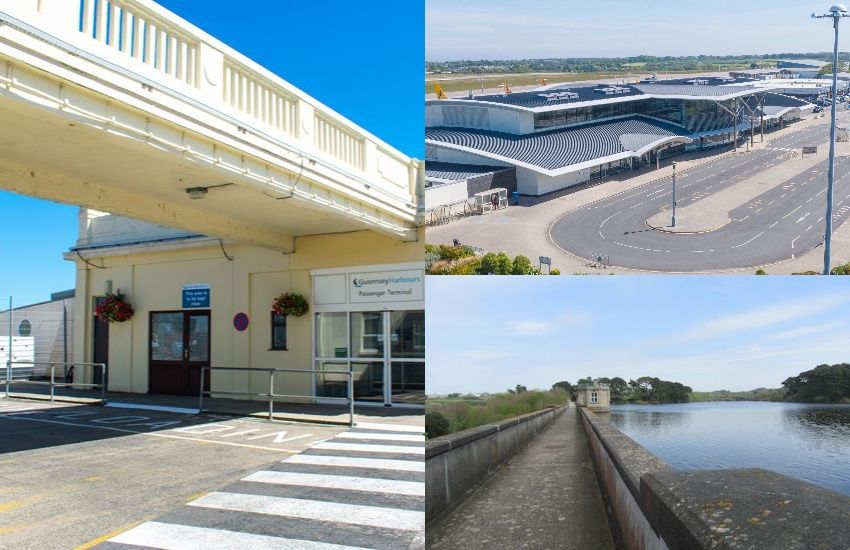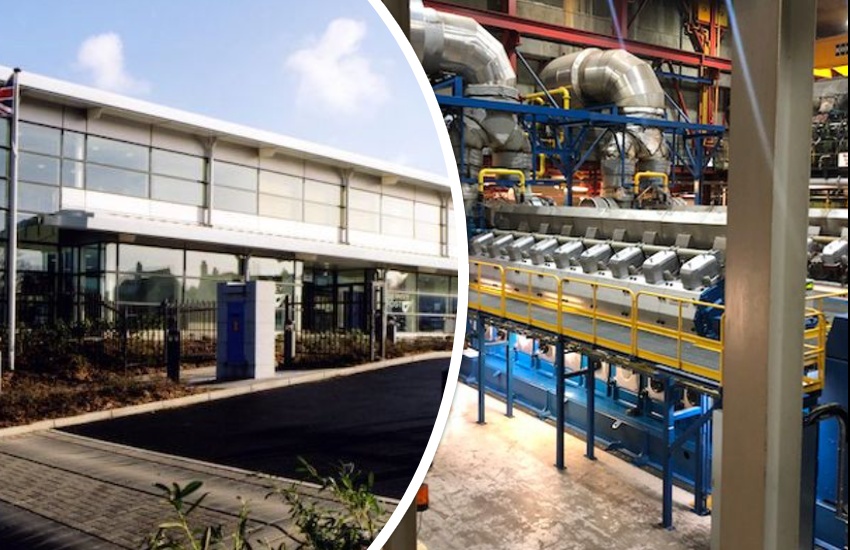


More of the States’ trading divisions – which include water, the ports and the dairy – could soon be set up as companies and run by commercial boards.
The States’ Trading Supervisory Board is in the final stages of preparing proposals to take to the States’ Assembly. It is currently consulting with the Policy & Resources Committee.
The proposals, if approved, would extend Guernsey’s existing model of commercialisation under which trading divisions remain wholly owned by the States but are incorporated and run commercially by boards of directors operating independently of government.
This is the model used for Guernsey Post since 2001 and Guernsey Electricity since 2002.

Pictured: Guernsey Post (left) and Guernsey Electricity were commercialised around 20 years ago. The States will soon be asked if they want this model of commercialisation to be rolled out to other States' trading divisions.
It is not yet clear which States’ trading divisions will be included in the fresh round of commercialisations proposed. They will come from the following list of seven divisions which are currently unincorporated, managed by civil servants and overseen by the States’ Trading Supervisory Board:
“This would not mean selling them off, but it would mean that they would be run as companies by commercial boards, albeit within strategic direction set by the states,” said Deputy Peter Roffey, President of the States’ Trading Supervisory Board.
“They would remain publicly owned but run at more of an arm's length and free of some of the restraints which are inherent in States’ procedures.
“This is not a novel idea. For example, Guernsey Post is already commercialised. By contrast, Guernsey Water is not.
“We have now reached a stage where we are ready to take this matter to the States in the not-too-distant future. Indeed, a policy letter on the matter is currently being consulted on with the Policy & Resources Committee.”

Pictured: The political members of the States' Trading Supervisory Board. Deputy Peter Roffey, President, is flanked by members Deputy Charles Parkinson (left) and Deputy Nick Moakes.
Earlier this week, the Policy & Resources Committee unveiled proposals to set up a company to operate as a development agency which it wants to see running States’ assets and land along the east coast from the Bridge to the southern part of Town. Public assets in this area – and currently run as unincorporated divisions of the States – include the harbours in St. Peter Port and St. Sampson’s.
“I don’t think [our proposals] in any way prevent the consideration of a development agency put forward by the Policy & Resources Committee. But as the island's ports are one area where commercialisation could well be considered, it seemed right to mention [our proposals] in this context,” said Deputy Roffey.
“This first policy letter will not involve any detailed proposals but will suggest a direction of travel and seek permission to work up the details.”
The States’ Trading Supervisory Board was established in 2016 as a permanent part of the island’s machinery of government to provide a single States’ committee to oversee all publicly-owned trading assets.
As well as overseeing the trading divisions which it is now considering for commercialisation, the Board acts as shareholder of four existing States-owned companies: Cabernet Group, the parent company of Aurigny; Guernsey Electricity; Guernsey Post; and Jamesco 750, which owns two fuel vessels bought when the island faced an importation crisis in 2008.
It is expected that the Board would play the same role as shareholder on behalf of the States in any trading divisions incorporated in the fresh round of commercialisations about to be proposed.

Pictured: The States' Trading Supervisory Board acts as shareholder of Aurigny.
The States’ Trading Supervisory Board may expect reasonable political support for its proposals from a States’ Assembly which has indicated more appetite than most of its predecessors for commercialising States’ assets and transferring services to the private or third sectors. But it would need to address numerous challenges before a further round of commercialisations could actually take effect.
In 2006, the Public Accounts Committee commissioned the Wales Audit Office to carry out a comprehensive assessment of Guernsey Water and the auditors concluded that “commercialisation of Guernsey Water in line with existing Guernsey models is unlikely to provide any additional value for money that cannot be delivered via improvements to the existing structural arrangements”.
The regulation of any newly commercialised company would need to be considered. Regulatory arrangements in place for most of the time since Guernsey Post and Guernsey Electricity were commercialised are now widely regarded by the States as having largely failed and to be no longer suitable for States-owned monopolies.
In addition, some of the trading divisions which may now be considered for commercialisation – such as the airport and the dairy – have experienced periods of annual losses requiring financial support from taxpayers or other States’ operations and the model of commercialisation has not prevented Aurigny from suffering substantial losses over many years.
Comments
Comments on this story express the views of the commentator only, not Bailiwick Publishing. We are unable to guarantee the accuracy of any of those comments.